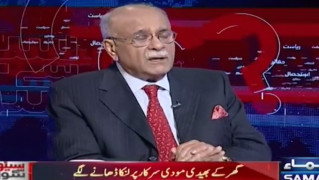NDP Surge to Second Place Nationally and First in Quebec as Liberals Stumble, Bloc Collapse
Conservatives Cruising to Victory With 43%Support, NDP (24%) and Liberals (21%) Battle it Out for Second Place
Thursday, April 21, 2011
Toronto, ON A new Ipsos Reid poll on Canada's Federal Election has captured the collapse of the Bloc vote in Quebec that has catapulted Jack Layton's NDP into first place there and second place nationally as the Liberals sink to third place. What this suggests is that with this new political landscape, Stephen Harper's Conservatives may well be headed for a solid majority government while the Ignatieff Liberals may not yet have hit bottom with just over a week to go.
If the election were held tomorrow, the Conservatives would receive 43% of the vote among decided voters, up 2 points from two weeks ago. Further, 45% believe that the Conservative Party under Stephen Harper has done a good job and deserves re-election, which, if translated into votes, would likely secure a majority government. Conversely, 49% more closely believe that the Tories do not deserve to be re-elected and its time for another party to be given a chance to govern the country. One in ten (6%) dont know.
Overall, Jack Layton and his NDP are flying high and now find themselves ahead of the Liberals nationally, on the heels of two solid performances at the televised leaders debates, an affable and trusting nature, and policies that are resonating with many Canadians, especially on healthcare. Jack Layton and the NDP would receive 24% support, up 5 points from two weeks ago. This represents the first time in 19 years that the NDP has been in second place, and the first time in 20 years that theyve been ahead of the Liberals in the polls.
Things are looking increasingly dire for Michael Ignatieff and his Liberal Party, who have the support of only 21% of decided voters, down 5 points in two weeks. This is put in context by an Ipsos poll released yesterday which revealed, despite the Liberal leaders assertions that his party is the best and only party to lead on healthcare, Canadians least trust the Liberals and most trust the NDP on that file. The Green Party, led by Elizabeth May, has 4% of the vote.
Support for Gilles Duceppe and the Bloc Quebecois has collapsed in Quebec, and they no longer hold on to the wide lead they held in the province just weeks ago. They have dropped to 6% nationally, down 3 points, and appear to have lost their stranglehold on the province for the moment.
One in ten Canadians (8%) do not know who they will vote for on Election Day.
A closer look at the regions reveals that:
- In Quebec, a four-way race is developing making it the most competitive province in the country, with many seats up for grabs for all the parties. The NDP (28%) leads narrowly over the Bloc Quebecois (27%), with the Conservatives (24%) and Liberals (20%) closely behind. Support for the Green Party has eroded (0% -- rounded down).
- In Ontario, the Conservatives (41%) maintain a comfortable lead over the Liberals (27%), who are being challenged by the NDP (22%) who are not very far behind. The Green Party sits at 6% support.
- In British Columbia, the Conservatives (46%) still have a healthy lead over the surging NDP (32%), but the Liberals (12%) are struggling to maintain levels of support higher than that of the Green Party (9%).
Recent election events may have begun to capture the interest of more Canadians as 63% now say they are absolutely certain to vote, up 7 points from Ipsos last horserace poll two weeks ago. Among those who say theyre very likely to vote, Conservative support softens slightly to 42% (-1), NDP support strengthens slightly to 25% (+1), the Liberal vote remains unchanged (21%) and Bloc support strengthens to 7% (+1). Support for the Green Party (4%) is also unchanged when examining the vote among those absolutely certain to vote.
Conservative Party support is still the most robust, with 92% of current Tory supporters saying that they are certain (67% absolutely/24% fairly) that this is the party theyll vote for on Election Day. By comparison, nine in ten (89%) NDP voters say the same (49% absolutely/40% fairly), 87% of Bloc voters (56% absolutely/30% fairly), 86% of Liberal voters (45% absolutely/41% fairly), and 85% of those voting for some other party including the Greens (44% absolutely/41% fairly), are certain that this is the Party they will end up supporting on Election Day. The only figure that has changed substantially since two weeks ago is the commitment of Bloc voters with 87% (up 12 points) of supporters saying this is the party they will vote for on Election day (67% absolutely/24% fairly). This suggests that, with the erosion of Bloc votes in the past two weeks, they are getting closer to their figure of core supporters, at which time it will be difficult to dip further in the polls.
Canadians Split on Whether They Prefer Harper Majority or Coalition
Stephen Harpers campaign for a majority has been more vocal in recent days, saying that if he doesnt win a majority government, the opposition will certainly try to take over running the country by means of a coalition. But Canadians are dead split on whether they would prefer a coalition of the Liberals and NDP or a majority government.
Nearly half (46%) would prefer to see Stephen Harper and the Conservatives winning a majority government. If a Harper majority is defined as the ballot-box issue for Canadians, and this proportion of Canadians shows up to vote for a Harper majority, they would certainly earn one with this proportion of the popular vote. The other half (46%) of Canadians, though, would prefer the Liberals and the NDP forming a coalition to take over from Stephen Harper and the Conservatives.
But the story changes, slightly, when the Bloc Quebecois is thrown into the mix. More Canadians would rather see Stephen Harper and the Conservatives winning a majority government (48%) than the Liberals, NDP and Bloc forming a coalition to take over from Stephen Harper and the Conservatives (41%). One in ten (11%) are undecided.
http://www.ipsos-na.com/news-polls/pressrelease.aspx?id=5218































